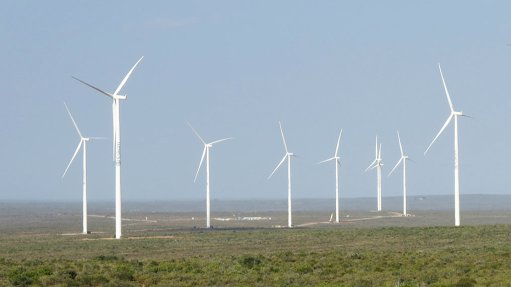Creative destruction
Nearly every episode of the 1966 classic television series, Mission Impossible – yes, it was on television before it became a movie franchise – started with the now iconic lines, “Your mission, Jim, should you decide to accept it” and “This tape will self-destruct in five seconds. Good luck, Jim.” The tape would then emit smoke before catching fire, thereby getting destroyed.
I remain not as much impressed by the technology as by Jim’s ability to absorb the detailed mission instructions while being cognisant of the source’s imminent destruction.
If you thought that Mission Impossible’s key message was “creative destruction”, you would, unfortunately, be wrong.
Creative destruction, or schöpferische zerstörung in German and also known as Schumpeter’s gale, is attributable to Austrian-born economist Joseph Schumpeter. But, like many great economists, he borrowed the phrase from someone else – Karl Marx, the great German author of the 1848 pamphlet, The Communist Manifesto, and of the three-volume Das Kapital, which he wrote from 1867 to 1883. It was only in 1939 that ‘creative destruction’ found favour, having been derived from Marx’s theory of economic innovation and the business cycle.
According to Schumpeter, the ‘gale of creative destruction’ is “the process of industrial mutation that continuously revolutionises the economic structure from within, incessantly destroying the old one, incessantly creating a new one”. In Marxian economic theory, however, the concept refers more broadly to the processes of accumulation and annihilation of wealth under capitalism.
The powers that be may do well to heed Marx’s words: “Accumulation of wealth at one pole is at the same time accumulation of misery, agony of toil, slavery, ignorance, brutality, mental degradation, at the opposite pole.” If you were curious and looked up ‘creative destruction South Africa’, your favourite search engine would return “Africa and the Fourth Industrial Revolution: The Need for ‘Creative Destruction’ Beyond Technological Change", a December 4, 2018, article by the Heinrich Böll Stiftung.
In case you need reminding, the Fourth Industrial Revolution is the ongoing automation of traditional manufacturing and industrial practices using modern, smart technology. The First Industrial Revolution, between 1760 and 1840, was marked by a transition from hand production methods to machines through the use of steam power and water power. The Second Industrial Revolution, which took place from 1871 to 1914, resulted from the installation of extensive railway, telegraph and electricity networks. Increasing electrification enabled factories to develop the modern production line. The Third Industrial Revolution, which took place in the last century, saw the production of the computer, which used binary floating-point numbers and Boolean logic and marked the beginning of more advanced digital developments.
The Heinrich Böll Stiftung recommendation to governments with respect to the Fourth Industrial Revolution is: “Governments in the global South need to start emphasising science, technology and innovation policies in their long-term growth strategies. Home-grown innovation and development can be realistically financed through halting illicit financial outflows and curbing the excesses of capitalist accumulation through misinvoicing and tax-avoidance schemes. Africa needs more thorough processes of ‘creative destruction’, which, rather than merely just inducing technological changes, also ensure the removal of anachronistic (post- and neocolonial) institutional forms that retard development and can produce real material improvements while living within ecological limitations.”
In South Africa’s instance, all economic roads lead to Rome, as it were, with Rome being education – functional education and education with intention. South Africans need to be functionally literate. The United National Educational, Scientific and Cultural Organisation (Unesco) defines functional literacy as “the practical skill set needed to read, write and do maths for real-life purposes, so people can function effectively in their community”.
Article Enquiry
Email Article
Save Article
Feedback
To advertise email advertising@creamermedia.co.za or click here
Press Office
Announcements
What's On
Subscribe to improve your user experience...
Option 1 (equivalent of R125 a month):
Receive a weekly copy of Creamer Media's Engineering News & Mining Weekly magazine
(print copy for those in South Africa and e-magazine for those outside of South Africa)
Receive daily email newsletters
Access to full search results
Access archive of magazine back copies
Access to Projects in Progress
Access to ONE Research Report of your choice in PDF format
Option 2 (equivalent of R375 a month):
All benefits from Option 1
PLUS
Access to Creamer Media's Research Channel Africa for ALL Research Reports, in PDF format, on various industrial and mining sectors
including Electricity; Water; Energy Transition; Hydrogen; Roads, Rail and Ports; Coal; Gold; Platinum; Battery Metals; etc.
Already a subscriber?
Forgotten your password?
Receive weekly copy of Creamer Media's Engineering News & Mining Weekly magazine (print copy for those in South Africa and e-magazine for those outside of South Africa)
➕
Recieve daily email newsletters
➕
Access to full search results
➕
Access archive of magazine back copies
➕
Access to Projects in Progress
➕
Access to ONE Research Report of your choice in PDF format
RESEARCH CHANNEL AFRICA
R4500 (equivalent of R375 a month)
SUBSCRIBEAll benefits from Option 1
➕
Access to Creamer Media's Research Channel Africa for ALL Research Reports on various industrial and mining sectors, in PDF format, including on:
Electricity
➕
Water
➕
Energy Transition
➕
Hydrogen
➕
Roads, Rail and Ports
➕
Coal
➕
Gold
➕
Platinum
➕
Battery Metals
➕
etc.
Receive all benefits from Option 1 or Option 2 delivered to numerous people at your company
➕
Multiple User names and Passwords for simultaneous log-ins
➕
Intranet integration access to all in your organisation

















